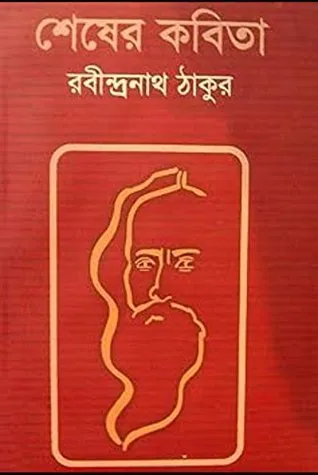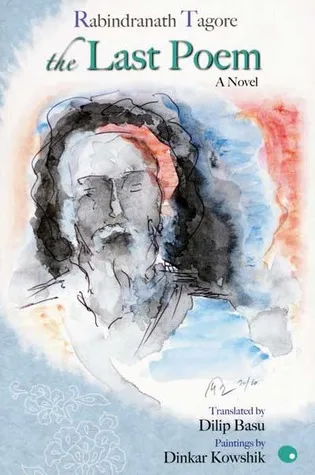রবিঠাকুরের শেষের কবিতা ছোটবেলায় আমার পড়া হয়ে ওঠেনি। অন্যদের মত আমিও কবিতার বই ভাবতাম একে, ঐ যে—নামে কবিতা আছে যে! আর ওই বয়সে কবিতা তখন একটুও টানতো না। এখন টানে, কিন্তু বুঝে উঠতে পারি না।
তো, যখন জেনেছি বইটা আসলে উপন্যাস তখন আর বই পড়ার অভ্যেস নেই। একদমই নষ্ট হয়ে গিয়েছে। আমার জেনারেশনের ছেলেমেয়েদের মত ইন্টারনেটে মজেছি। বহুদিন বই পড়ায় ফিরে যেতে পারিনি।
তবে গত দুই-তিন বছরে অভ্যেসটা আবার ফিরে এনেছি আস্তে আস্তে এবং এখন নিয়মিত পড়া হয়।
সেই সুবাদে শেষের কবিতা হাতে নিয়েছিলাম। রবীন্দ্রনাথের সব উপন্যাস কিন্তু চলতি ভাষায় লেখা না। এটা চলতি ভাষার। যদিও সাধু ভাষায় খুব যে সমস্যা তয় তা কিন্তু নয়।
তৎকালীন বাংলা সাহিত্যের বিবেচনায় ভাষার ব্যবহারও বেশ প্রাঞ্জল বলে ‘শেষের কবিতা’ পড়তে বিরাট কোন অসুবিধে হয়না। বইটা আধুনিক পাঠকদের ভেতর জনপ্রিয় কেন বুঝতে পারি।
গল্প অমিত আর লাবণ্যের। অমিত বিদেশ চরিয়ে আসা কেতাদুরস্ত, কেউকেটা, উদ্দাম যুবক। যার সব কিছুকেই প্রশ্ন করা চাই। স্টাটাস কো ভাঙ্গা আর এন্টি-এস্টাবলিশমেন্ট চিন্তাভাবনা অমিতের সমস্ত মানস জুড়ে। কাউকেই সে বিশেষ পাত্তা দেয়না।
ঘটনা ক্রমে এক পাহাড়ি রাস্তায় এই একটুর জন্যে গাড়ি অ্যাকসিডেন্ট থেকে বেঁচে পরিচয় হয় লাবণ্যের সাথে।
লাবণ্য শিক্ষিত বাঙালি নারী—যার ভেতর বাঙালি ধ্যানধারণা, মূল্যবোধের সাথে বৈশ্বিক জ্ঞান ও ভাবধারার সংমিশ্রণ ঘটেছে। লাবণ্যের অধিকারে থাকা কবি বায়রনসহ অন্যান্য পশ্চিমা পণ্ডিতদের বই দেখে অমিত। এক পর্যায়ে, একদম অমোঘ পরিণতির মতই যেন দুজন দুজনার প্রেমে পড়ে।
এইসব বইয়ের প্রথমভাগের আলাপ। কিন্তু শেষের কবিতা রোমান্টিক উপন্যাস হলেও প্রথাগত প্রেমের সম্পর্কের মত তাঁদের মিলনের পথের অন্তরায় পারিবারিক চাপ বা রূপকথার দানোর মত কোন মহা খল চরিত্র নয়।
দুজনই মানসিকভাবে চিন্তাশীল মানুষ এবং তাঁদের চিন্তাধারার ভিন্নতা, দর্শনের পার্থক্য এবং ভালোবাসার নিমিত্তে তুলনামূলক আলাপেরই রূপ সম্পূর্ণ বই।
একদম নির্ভেজাল প্রেমের উপন্যাস হিসেবে উপভোগ করা যাবে না, এমন নয়, কিন্তু আগ্রহী পাঠক দৃষ্টি দিয়ে চেয়ে দেখলেই একটু তলের প্রবল সংগ্রাম দেখতে পাবেন।
তবে আমার কিছু অভিযোগ আছে। বলা যায় অনুযোগ। রবি ঠাকুর যে বাস্তববাদের আশ্রয় নিয়েছেন, তা আমার চাতুরি মনে হয়েছে। যেন উনি পাঠককে শাস্তি দিচ্ছেন। আমার ধারণা হয়ত ভুল, হয়তো আমিই খুব বেশী আবেগের বশবর্তী হয়ে এমনটা ভাবছি।
সে যাই হোক, শেষের কবিতা পড়ার দুদিন যাবত রেশ রয়ে গিয়েছিলো। কিছুতেই মাথার ভেতর থেকে চরিত্রগুলো ও তাঁদের পথচলা দূর করতে পারছিলাম না। বহুদিন মনে থাকবে এ উপন্যাসের কথা। মনে হলো, আগে না পড়ে ভালোই করেছি। পরিণত বয়সে যতখানি উপভোগ করেছি, কৈশোরে সেভাবে পারতাম না এটা হলফ করেই বলা যায়।
বিডিকমুনিটির পাঠকেরা বাংলা সাহিত্য নিয়ে কতটা উৎসাহী জানি না। তবে আমি আশাবাদী বাংলা ভাষা এবং বাংলা ভাষার বিষয় আশয় নিয়ে ব্লকচেইনে চমৎকার আলাপের জায়গা গড়ে উঠবে।
ধন্যবাদ পড়ার জন্যে।
When I finally knew the book was a novel, I wasn’t reading anymore. Not a single book in a year. Like most other kids who grew up with the rise of the internet, I lost my appetite for almost anything meaningful.
Thankfully for the past two or three years I got myself together and have been reading pretty regularly.
So I picked up The Last Poem almost habitually. Rabindranath Tagore mostly wrote his novels in chaste bengali dialect (now obsolete), but this book wasn’t one of them. I don’t mind reading chaste dialects of Bengali but like middle English, it is kind of hard to follow. Considering the time it was written, The Last Poem is quite lucid and plain. I understand why it is still so popular among bengali readers. Those of you who are interested in reading tagore in English shouldn’t worry about this though.
The story is about Amit and Labonno. Amit lived and studied abroad, adopted their cultural nuances. He has an aura of anti-establishment and tendency to break free of the status quo. He’s not mindful of anyone.
In the course of events, he survived a near car crash and met Labonno.
Labonno resembles an educated bengali female of then—in whom bengali ideologies, morals collided with knowledge and philosophy of outer worlds. Amit sees the poetry of Lord Byron and other books in her possession. These two fall in love eventually, almost like a prophecy.
All of these are in the initial development stage of the novel. The Last Poem is not a traditional romance book however, there is no cliche villain who bars their ways, no financial difficulties and also there is no family pressure (it is very common in bengali culture that the family of both bride and groom will play some big roles determining who will marry whom).
Both of them are adept in critical thinking and their relative, contradictory ideas on philosophy, human nature, relationships actually make the book. Think of natural conversations a couple might have but instead of who cheated on whom and how cool the neighbor’s dog is, they talk about poetry and the nature of a true companionship.
That doesn’t mean, one cannot enjoy The Last Poem as a romance only book. All journeys and ups and downs of a relationship are there.
However, I have some reservations. More like a complaint actually. The sort of realism Tagore seeks to incorporate seemed gimmicky to me. As if he’s tormenting the readers. I could be wrong, perhaps I got involved in the story way too much.
Having said that, the book left me in reverie for a couple of days. I couldn’t get the characters and their lives out of my head. I will hold the book in warm remembrance for a long time and I’m actually happy that I didn’t read it as a kid. Quite sure I wouldn’t enjoy it as much as I did now.
Thanks for reading.

